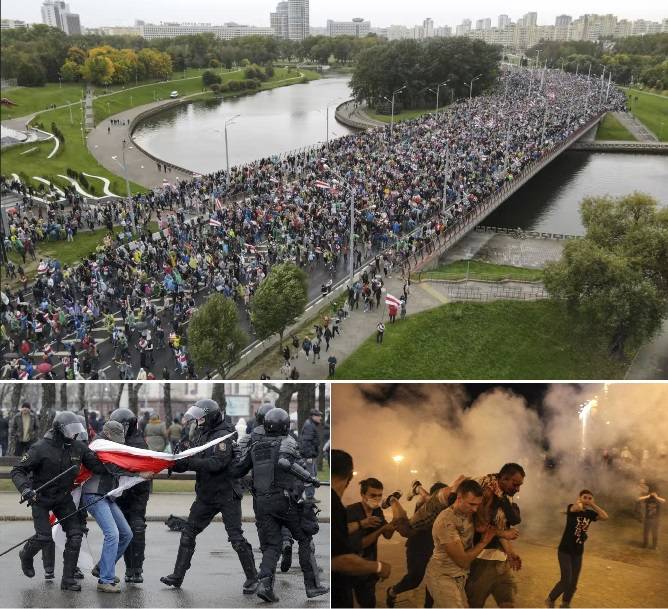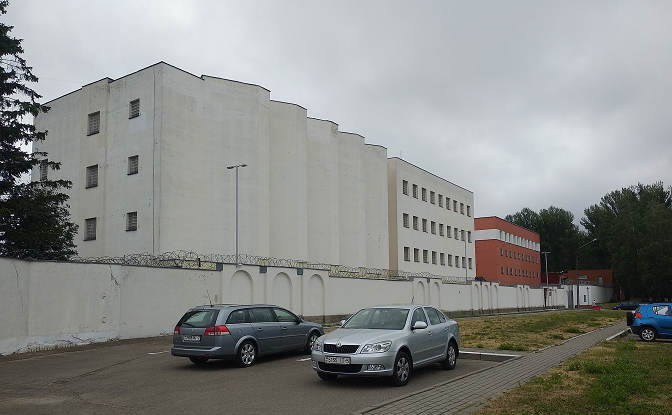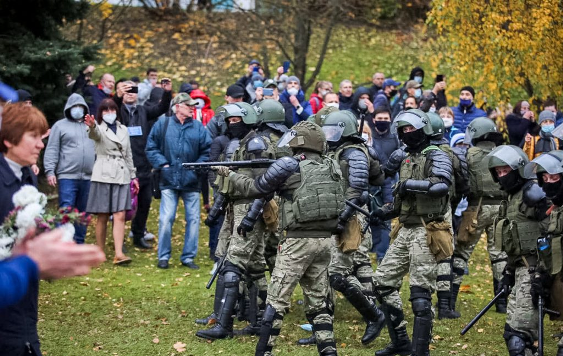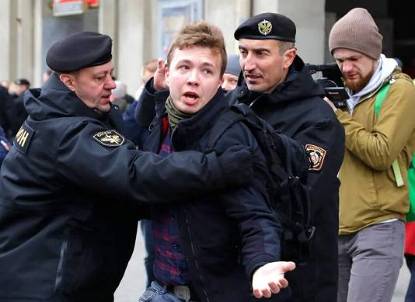

Lukashenko's disputed election "victory" in August 2020 was followed by an unprecedented wave of public protest and a brutal crackdown as police attacked protesters with water cannons, tear gas and stun grenades.
Following the Belarus Presidential election on 9 August 2020, Lukashenko was proclaimed the victor. According to the state Central Election Commission, he received 80% of the popular vote.
"An unprecedented wave of public protest followed, as hundreds of thousands of ordinary citizens took to the streets to demand that Lukashenko step aside and that a fresh election be held."But Lukashenko's "victory" was disputed both by the domestic opposition and by international observers and it was widely considered to be fraudulent. The official claim that he had received 80% of the vote was rejected by many observers as implausible because of the high level of discontent with his regime.
The EU issued a statement criticising the election as "neither free nor fair" and refusing to recognise what it called the "falsified results". The official position of the EU was that "the so-called ‘inauguration’ of 23 September 2020 and the new mandate claimed by Aleksandr Lukashenko lack any democratic legitimacy". [Note: he is known also as Alyaksand(a)r Ryhoravich Lukashenka. Alexander Grigoryevich Lukashenko is more common.]
"The protests were met with a brutal crackdown by the authorities, as Belarusian police and military attacked protesters with water cannons, tear gas and stun grenades."An unprecedented wave of public protest followed, as hundreds of thousands of ordinary citizens took to the streets to demand that Lukashenko step aside and that a fresh election be held.
The protests were met with a brutal crackdown by the authorities, as Belarusian police and military attacked protesters with water cannons, tear gas and stun grenades. It is estimated that more than 35,000 protestors were arrested and thousands brutally beaten, with more than 4,000 claiming to have been tortured, according to Nash Dom, a Belarusian NGO.

The notorious Okrestina Detention Centre in Minsk where anti-Lukashenko protestors are reported to have been tortured by Belarusian security forces.
"The promise of Russian assistance bolstered Lukashenko’s confidence and his sense of impunity."The rest of the world watched as "Batka" proceeded to cracked down ever harder on his opponents - and it didn't do much about it. Although the US and EU initiated various sanctions, it is generally agreed that these measures had very little impact on the regime.
The protests continued throughout the autumn and winter and into the early part of 2021, but the unmitigated brutality of police and security forces meant that the opposition was eventually driven underground - or into exile. Svetlana Tikhanovskaya - considered by many to be the true victor of the election - was forced to seek refuge in Lithuania.

Belarusian military deployed to suppress protests following the 2020 Presidential elections.

Activist and journalist Roman Pratasevich arrested by Belarusian security forces in May 2021 after fighter jets forced a flight en route from Athens to Vilnius to land in Minsk.